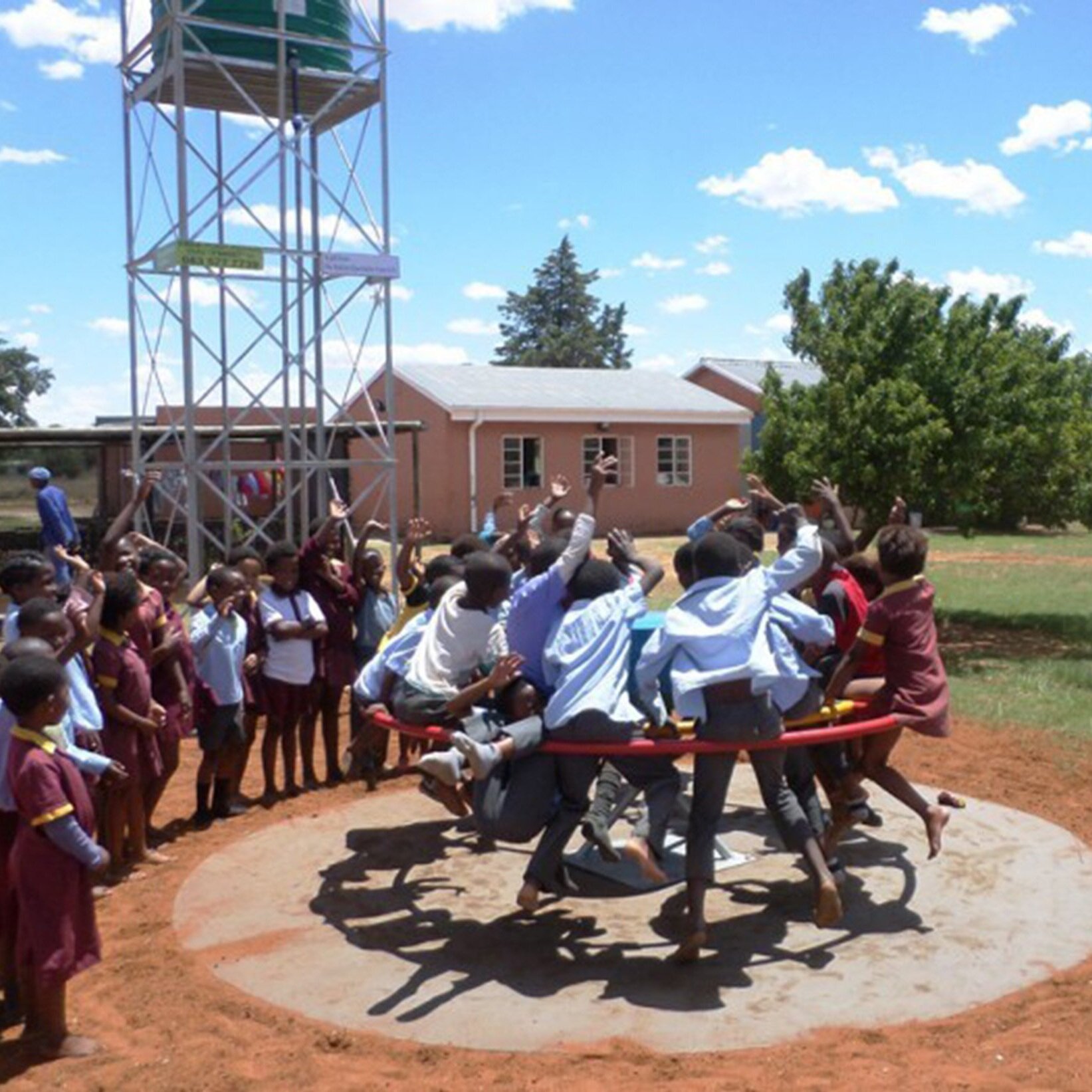Socio-economic development
Socio-economic development (SED) is a national and global imperative which is embedded in the ethos of the AECI Group. The AECI Group is a socially responsible organisation, investing in effective community-focused organisations and initiatives, through the development and upliftment of vulnerable communities surrounding its operations. SED in this context refers to community development as defined by South African legislation. International initiatives are defined in accordance with legislation in the countries in which AECI operates. The AECI SED programmes are driven by strategic social investment, community empowerment, meaningful partnerships and good governance that ensures sustainable development by “teaching people to fish rather than giving them a fish”.
Efforts are channelled into three key vehicles aligned with the business strategy and seen as critical to improving the lives of vulnerable individuals and communities in which the Group operates. These vehicles are: AECI Group CSI Fund, AECI Community Education and Development Trust and Tiso AEL Development Trust.
AECI is committed to ensuring regular monitoring and evaluation of programmes.

AECI GROUP CSI FUND
In South Africa the AECI Group allocates a minimum of 1% of its net profits after tax toward community development in an ethical and responsible manner in adherence to the B-BBEE Codes of Good Practice. Furthermore, The King Report on Corporate Governance promotes good social and environmental practices as part of good business practice. Internationally, the AECI Group aims to embrace the responsibility for corporate actions and to encourage a positive impact on the environment and stakeholders that benefit the organisation and the environment in which the company conducts its business.
THE AECI GROUP CSI FUND PROGRAMMES
The Education for Life Programme
Programme objectives:
Improve learner outcomes
Improve educator skills and knowledge
The Infant and OVC Programme
Programme objectives:
Provide emergency response for abused and abandoned infants
Provide holistic care and support for OVCs
The Inclusion Programme
Programme objectives:
Increase educational opportunities for PWD
Improve the artisanal skills of PWD
The Environmental Programme
Programme objectives:
Increase environmental awareness among primary school children
Provide environmentally-focused community upliftment
CONTACT
Group Community Development Programmes Specialist: Nicole Solomon
E csi@aeciworld.com
T +27 11 806 8843
AECI COMMUNITY EDUCATION AND DEVELOPMENT TRUST
It all begins with an idea. Maybe you want to launch a business. Maybe you want to turn a hobby into something more. Or maybe you have a creative project to share with the world. Whatever it is, the way you tell your story online can make all the difference.
Applicants can apply to one (or more) of the following programmes:
The Education Programme
The Skills Development Programme
The “Water for Tomorrow” Environmental Programme
The Food Security Programme
TRUST PROGRAMMES
The Trust achieves its objectives through the following four programmes:
The Education Programme
The Education programme aims to build bridges to enable access to professional qualifications for young adults
Target beneficiaries:
Young adult school leavers (17–20 years)
The Trust will favour applications that have women and people with disabilities (PWD) as beneficiaries
Programme objectives:
To increase options for young school leavers to access professional qualifications through post-matric studies and university foundation education programmes
To create a sustainable pipeline of school leavers who are be better prepared for accessing quality tertiary education
To improve graduation rates at universities in South Africa
The Skills Development Programme
This programme aims to support skills development in line with the national priority of increasing the number of artisans and technically skilled people
Target beneficiaries:
School leavers who want to pursue careers as: welders, plumbers, electricians, fitters and turners, and instrumentation technicians
At least 30% of beneficiaries must be women
The Trust will favour applications that have people with disabilities as beneficiaries
Programme objectives:
To improve intermediate artisan and technical competencies
To fast-track entry into artisan and technical programmes
To collaborate with AECI suppliers and customers on artisan and technical placements
The Water for Tomorrow Programme
The Water for Tomorrow programme aims to provide education and awareness on issues of water conservation and strengthen efforts to provide potable water to communities
Target beneficiaries:
Communities in rural areas
The Trust will favour applications that have women and people with disabilities as beneficiaries
Programme objectives:
Improve water conservation
Increase access to potable water, especially in rural areas
Food Security
Programme objectives:
Enable self sufficiency
Provide access to basic food and nutrition
Reduce hunger
Target Beneficiaries:
Families in rural communities
Areas with lack of access to basic food and nutrition
TISO AEL
DEVELOPMENT TRUST
The Tiso AEL Development Trust was established as part of AECI’s B-BBEE transaction in 2005. This Trust is funded through dividend income from share ownership in AECI and contributions.
TRUST PROGRAMMES
The Trust’s main objective is to provide holistic development of Orphans and Vulnerable Children in terms of Education, Food Security, Water and Health
Food Security
Programme objectives:
Creating sustainable livelihoods
Reduce hunger amongst children
Education
Programme objectives:
Increase the throughput rate in basic education
Provide whole child development
Water
Programme objectives:
Access to quality drinking water
Promote water conservation
Provide access to sanitation
Health
Programme objectives:
Provide access to Primary Health Care



